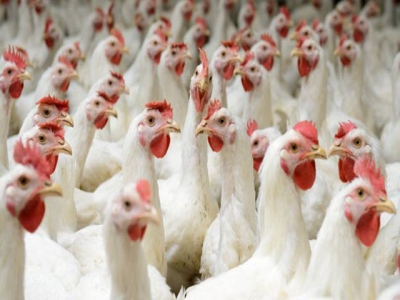Stress may affect gender ratio of poultry offspring

Treating hens with corticosterone can influence which sex chromosome offspring inherit.
University of Georgia College of Agricultural & Environmental Sciences associate professor Kristen Navara has found that the chance that an individual is born male or female is not as simple as 50/50. Stress and a lack of resources can trigger hormonal shifts that make it more likely for a mother to produce female offspring, she said.
Navara has discovered that this holds true for birds, and although the mechanism is different, it’s true for humans and most mammals as well.
Women who gain less weight during pregnancy are more likely to have female offspring, and wild birds that experience food shortages or other environmental stress produce more female chicks, she said.
“So, all birds and mammals produce these hormones, and that’s what elicits physiological responses that help them survive environmental challenges,” Navara said.
“When we knew that wild birds were able to adjust the sex of their offspring, our first question was, ‘What is responsible for transducing those environmental conditions into physiological signals that could control sex ratios?’ The answer was stress hormones,” she said. “We believed those stress hormones might mediate this effect on sex ratio, and we have found that they are, at least in part, a player in the process of manipulating sex ratios.”
The research showed that treating hens with corticosterone, the stress hormone, can influence the sex chromosome the hens’ offspring inherit.
In early 2018, Navara published a book exploring the factors that skew sex ratios in animals, Choosing Sexes: Mechanisms & Adaptive Patterns of Sex Allocation in Vertebrates. It is one of the only works that takes a comparative approach to explain the powerful use of hormones to manipulate sex ratios across species.
Understanding how stress hormones affect the sex of the hens’ chicks is invaluable information for the poultry industry, which prefers male chickens in the broiler sector, while the egg-laying sector requires female chickens.
“We know that birds in the wild have the ability to alter the sex of their offspring without our help,” Navara said. “We want to harness that ability for the industry. … In the poultry industry, the sex of the chicks is particularly important. So, we’re trying to find a treatment that would program the hen to produce more of the desired sex.”
Currently, with the help of the Georgia Genomics & Bioinformatics Core at the University of Georgia, Navara’s team has identified a handful of genes that could potentially be the links through which stress and stress hormones control the sex of progeny. They are now in the process of verifying whether expression of these genes does, in fact, change when stress triggers sex-ratio skews.
Up until this point, they’ve only been able to affect the sex ratio of the hen’s chicks by treating her with hormones -- a practice that is banned in the poultry industry (plus, no hormone products are on the market for the poultry industry).
The team's next step is finding a hormone-free treatment to trigger the gene responsible for translating stress into hormones to skew the sex ratio of chicks. Eventually, this could be accomplished through breeding, but that is a project for the future, Navara said.
Other researchers have been studying methods to determine the gender of a chicken embryo early after it is laid so unhatched eggs can be sorted prior to chick development.
Có thể bạn quan tâm
Phần mềm

Phối trộn thức ăn chăn nuôi

Pha dung dịch thủy canh

Định mức cho tôm ăn

Phối trộn phân bón NPK

Xác định tỷ lệ tôm sống

Chuyển đổi đơn vị phân bón

Xác định công suất sục khí

Chuyển đổi đơn vị tôm

Tính diện tích nhà kính

Tính thể tích ao hồ



 Study shows efficiency of BSF and bacteria for…
Study shows efficiency of BSF and bacteria for…  Mobile system can inactivate avian influenza virus
Mobile system can inactivate avian influenza virus